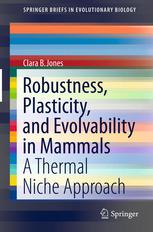

Most ebook files are in PDF format, so you can easily read them using various software such as Foxit Reader or directly on the Google Chrome browser.
Some ebook files are released by publishers in other formats such as .awz, .mobi, .epub, .fb2, etc. You may need to install specific software to read these formats on mobile/PC, such as Calibre.
Please read the tutorial at this link: https://ebookbell.com/faq
We offer FREE conversion to the popular formats you request; however, this may take some time. Therefore, right after payment, please email us, and we will try to provide the service as quickly as possible.
For some exceptional file formats or broken links (if any), please refrain from opening any disputes. Instead, email us first, and we will try to assist within a maximum of 6 hours.
EbookBell Team

5.0
80 reviewsAmong the unresolved topics in evolutionary biology and behavioral ecology are the origins, mechanisms, evolution, and consequences of developmental and phenotypic diversity. In an attempt to address these challenges, plasticity has been investigated empirically and theoretically at all levels of biological organization—from biochemical to whole organism and beyond to the population, community, and ecosystem levels. Less commonly explored are constraints (e.g., ecological), costs (e.g., increased response error), perturbations (e.g., alterations in selection intensity), and stressors (e.g., resource limitation) influencing not only selective values of heritable phenotypic components but, also, decisions and choices (not necessarily conscious ones) available to individuals in populations. Treating extant mammals, the primary purpose of the proposed work is to provide new perspectives on common themes in the literature on robustness (“functional diversity”; differential resistance to “deconstraint” of conserved elements) and weak robustness (the potential to restrict plasticity and evolvability), plasticity (variation expressed throughout the lifetimes of individuals in a population setting “evolvability potential”), and evolvability (non-lethal phenotypic novelties induced by endogenous and/or exogenous stimuli). The proposed project will place particular emphasis upon the adaptive complex in relation to endogenous (e.g., genomes, neurophysiology) and exogenous (abiotic and biotic, including social environments) organismal features discussed as regulatory and environmental perturbations with the potential to induce, and, often, constrain variability and novelty of form and function